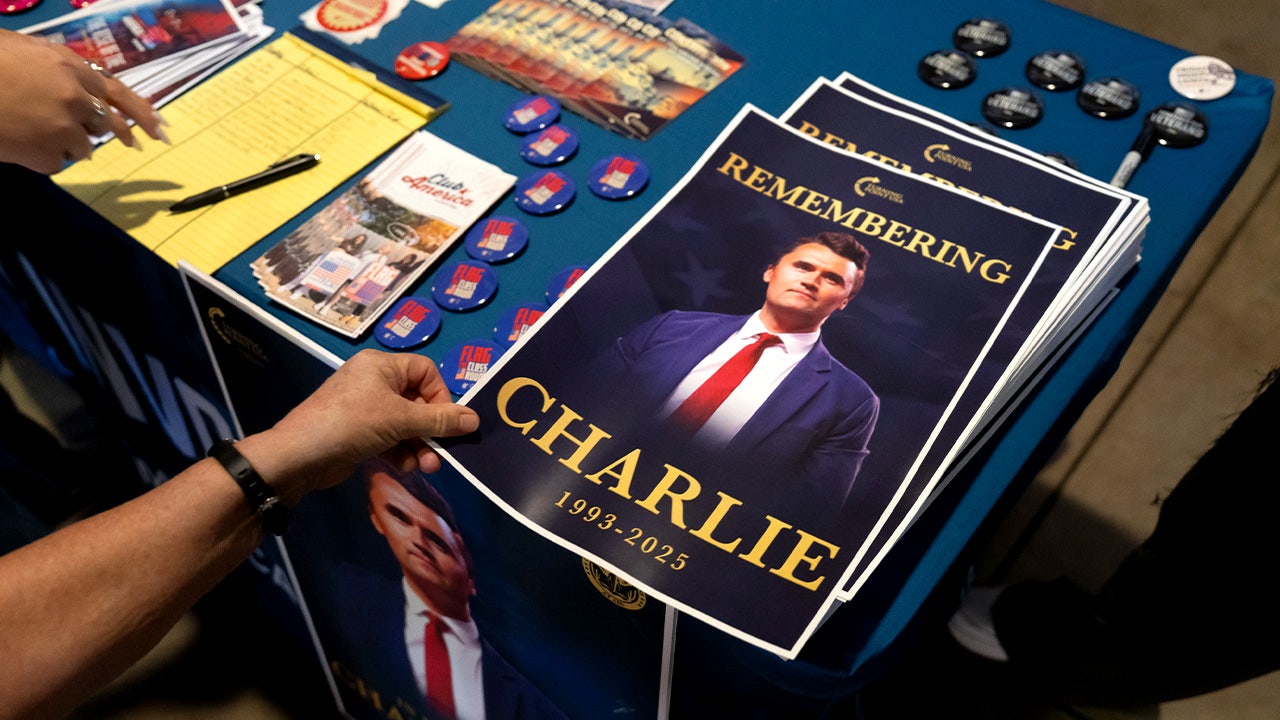Charlie Kirk’s Assassination Ignites Fire in Oregon Student: ‘Done Hiding’ Her Conservative Faith
Portland, September 16, 2025 — In the days after Charlie Kirk’s shocking assassination, a University of Oregon sophomore named Maggie Thorsby found herself staring at her phone, scrolling through the flood of tributes and outrage. The 19-year-old from a deep-blue state, where conservative voices often whisper rather than shout, felt a pull she couldn’t ignore. “Charlie’s death hit me hard,” she told Fox News on Tuesday morning, her voice steady but laced with emotion. “He was such an inspiration… and now, I’m done hiding behind the doors.” Galvanized by the loss of the Turning Point USA founder, Thorsby is channeling her grief into action, vowing to help “closeted conservatives” on her campus step out and speak up about their faith and politics—no matter the backlash.
From Silent Supporter to Campus Crusader
Thorsby’s story isn’t unique among young conservatives reeling from Kirk’s death last Wednesday, but it’s raw and resolute. A political science major at the Eugene campus, she’s long admired Kirk’s unapologetic style—his campus debates, his podcast rants, his blend of faith and fire that made conservatism feel accessible for Gen Z. But in Oregon, where Democrats outnumber Republicans 5-to-1 and progressive activism dominates dorm chats, voicing those views meant risking eye-rolls, arguments, or worse. “I’ve been scared to share my beliefs,” she admitted on “Fox & Friends.” “But Charlie showed us how to be bold.”
His killing—a sniper’s bullet mid-speech at Utah Valley University—flipped a switch. Inquiries to start new TPUSA chapters have exploded by over 37,000 since the shooting, a surge TPUSA executive producer Andrew Kolvet called a “groundswell” of youth energy. Thorsby, already involved in her school’s fledgling conservative group, sees her role as a bridge for the silent ones. “The Turning Point movement is a way to open those doors for closeted conservatives,” she said. “Especially here, where you’re afraid to say you love Jesus or support the Second Amendment.” She’s planning informal meetups—coffee chats, Bible studies with a political twist—to build a network where students can vent without judgment.
It’s personal for her too. Kirk’s “bold love for Christ” resonated deepest. “He wasn’t afraid to weave faith into the fight,” Thorsby reflected, echoing the vigils where Utah students prayed for his “Christian legacy.” In a state where faith-based views can draw quick labels of intolerance, she’s ready to lean in. “If Charlie could face down crowds and cameras, I can face my classmates.”
A Broader Wave: Kirk’s Legacy Fuels Youth Activism
Thorsby’s spark mirrors a national ripple. Across campuses, from Virginia to Notre Dame, conservative student editors are penning op-eds about Kirk’s “immediacy”—how his TikTok takedowns and rally roasts made politics feel urgent, not abstract. “His death felt personal,” wrote Peter McHugh of The Jefferson Independent at UVA, capturing the rupture on liberal-leaning grounds. At Notre Dame’s The Irish Rover, Lucy Spence highlighted Kirk’s invitation to critics: “Disagreements, come to the front of the line.” It’s that openness Thorsby wants to revive—dialogue over division.
But the post-Kirk landscape is thorny. While supporters like her rally, a darker undercurrent simmers: doxxing campaigns targeting critics, with over 30 educators fired or probed for “insensitive” social media posts. In Oregon alone, a teacher was suspended for a remark seen as celebratory. Thorsby acknowledges the tension but insists on grace. “We can’t meet hate with hate—that’s not what Charlie taught.” Instead, she’s focusing on empowerment, drawing from Kirk’s playbook: Speak truth, love boldly, and build community.
Echoes of Inspiration: What Comes Next for the ‘Closeted’ Generation
For Thorsby, this isn’t a fleeting reaction—it’s a pivot. She’s eyeing a TPUSA leadership role and dreams of hosting Kirk-style events at UO, where faith and policy collide without apology. “We’re at a turning point,” she said, borrowing a phrase from Kirk’s own rhetoric. In a divided America, where political violence—from Kirk’s shooting to threats against lawmakers—looms large, her quiet resolve feels like a counterpunch.
As the suspect’s arraignment looms and vigils fade, stories like Thorsby’s remind us: Tragedy can break us, or it can build us. For this Oregon Duck, it’s the latter—proving that even in blue strongholds, a lion’s roar starts with one voice refusing to stay silent. What’s your take—can Kirk’s flame keep burning through students like her?
